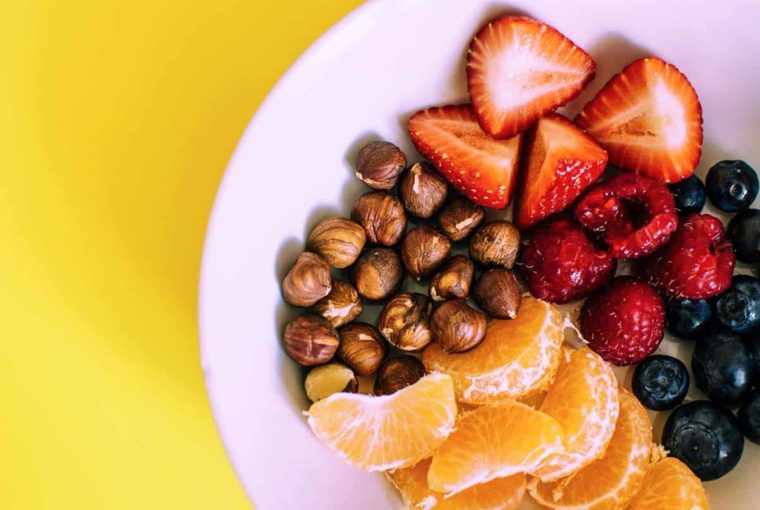The energy your body use comes from the food you eat and the liquids you drink. Carbohydrates, protein, and fats are the three main sources of your body’s energy. Carbohydrates are the main source of energy because it has sugar compounds that our cells need to function. This is the main reason why the amount of energy you have depends on the food you eat.
Understanding Your Body’s Energy
One of the most common ways that the body stores energy is the natural chemical in ATP (Adenosine Triphosphate). The energy provided to the body by this chemical is converted to glucose and then stored in the body’s muscle cells. When this energy storage begins to drop, there will be a loss in the body’s energy levels. Therefore, it’s vital to know that by reducing the amount of fat and carbohydrates that one eats and increasing the amount of protein in one’s diet, one will be able to maintain high levels of energy throughout the day.
Another form of energy the body uses is from the oxygen that the muscles in the body use. When one doesn’t have enough oxygen in the blood, the body’s muscles will begin to break down and cease to function. This is the number one cause of fatigue in many overworked people and for those who are trying to lose weight. To combat fatigue, one of the key concepts in dieting is to increase the amount of oxygen in the blood and, in turn, the number of calories the body burns and utilizes.
Foods That Decrease Your Energy
There are many different foods that you can eat to help boost your energy, but it’s important to understand which foods are healthy for your body.
Today, different diet regimens promise improved energy levels, like Dr Ruscio recommended, one of which is the Paleo diet. In this diet, you can eat a wide range of natural organic foods like meat, fish, vegetables, and fruits while avoiding all processed foods, dairy products, and foods that are rich in trans-fat.
When choosing the right foods to increase your energy, there are a couple of things you should know:
1. Junk Foods Decreases Energy
Fried foods, processed foods, and fast foods will drain your energy because they’re high in fat and low in fiber, which slows down your digestion. When you have slower digestion, it’ll reduce the speed at which the nutrients responsible for boosting your energy enter the body, delaying the energy spike you feel after your meal.
Aside from that, junk foods have low amounts of vitamins, minerals, and other essential nutrients that your body needs to function. Consuming too many fatty foods will also make you feel overly full, making you feel sleepy and sluggish.
Instead, it’s best to replace those foods with low-fat options, such as tofu, and lean meats, such as chicken, fish, and lean turkey. It’s important to note that you can lose the nutrients from dairy if it’s too rich in carbohydrates and sugar.
2. Energy Drinks Do More Harm Than Good
Energy drinks can be a great way to keep you energized without putting a lot of strain on your body. While they may taste great, they’re not the best option for your body, especially if you want to get the full benefit of consuming them.
One of the biggest problems with energy drinks is the fact that they’re often mixed with caffeine. Not only is caffeine a stimulant and can increase your heart rate and blood pressure, but it can also decrease your ability to get energy from other sources. B-complex foods and omega-3 fatty acids are some of the best energy-boosting nutrients out there, but many others are related to increased alertness and wakefulness.
Instead, opt for fruits and vegetables that contain plenty of antioxidants to prevent diseases such as cancer and heart disease. You also want to consider avoiding any high-sugar foods as they’ll only hurt your body.
3. Foods You Should Eat To Give You A Morning Boost
Breakfast is considered the most important meal of the day because it’s the perfect time to eat energy-boosting food to fuel your day. To help combat morning fatigue, here are some of the fruits you should eat:
- Avocado: Avocado is rich in vitamins and minerals and it has a significant amount of good fat that’s easy to burn. By consuming avocados, you’ll be able to have that energy boost you’re looking for in the morning.
- Bananas: Bananas help make you feel full for longer periods. This helps you avoid snacking on unhealthy foods that drain your energy.
- Cereals and Granolas: These all contain plenty of natural fiber and can help regulate your digestive system.
4. Hydration Is Critical To Maintain Energy Levels
Water is essential since it’s needed by many cellular functions, including energy production in the body. When you don’t drink enough water, you may feel dehydrated, which will slow down your bodily functions. Not drinking enough water will also make you feel sluggish and tired. Thus, to maintain good cell function and energy production, make sure you drink at least eight glasses of water a day. Also consider an inline water filter for your home to keep your family from consuming contaminated water.
5. Always Include Fruits And Vegetable In Your Daily Meals
If you want to boost your energy level and keep your energy level up throughout the day, you want to eat many fresh fruits and vegetables every day. By eating a lot of fresh fruits and vegetables, you’re giving your body a chance to cleanse your system of toxins and restore your body’s natural balance.
This is one of the benefits if you want to leave a plant-based life. But if you don’t want to become a full vegetarian, create a well-balanced meal that’s packed with fruits, vegetables, and a good source of carbohydrates and protein.
Final Thoughts
Foods are the source of your body’s energy, and you must choose the right foods to maintain your energy levels throughout the day. Most processed foods, fast foods, and junk foods may contain fat, but it lacks the other nutrients to sustain the energy you need to function. Energy drinks may give you a sudden energy boost, but its sugar content is harmful to your body in the long run.
To help your body produce enough fuel to get you through the day, maintain a balanced meal with fruits, vegetables, good carbs, and protein. Lastly, don’t forget to constantly hydrate your body by drinking eight glasses of water a day; water is essential for your cells to produce energy. Water also aids in proper digestion, so your body easily absorbs those energy-boosting nutrients.




